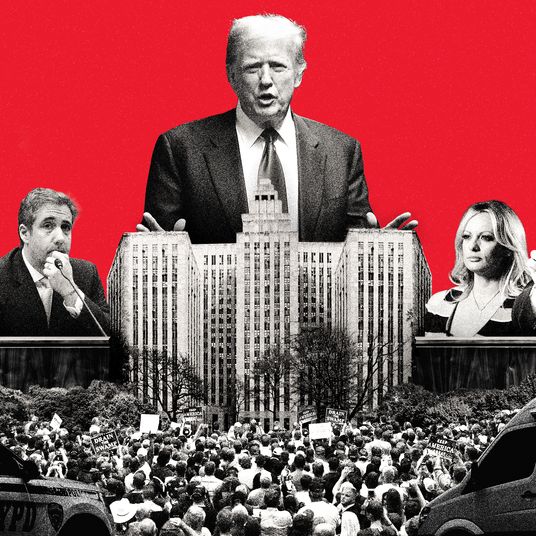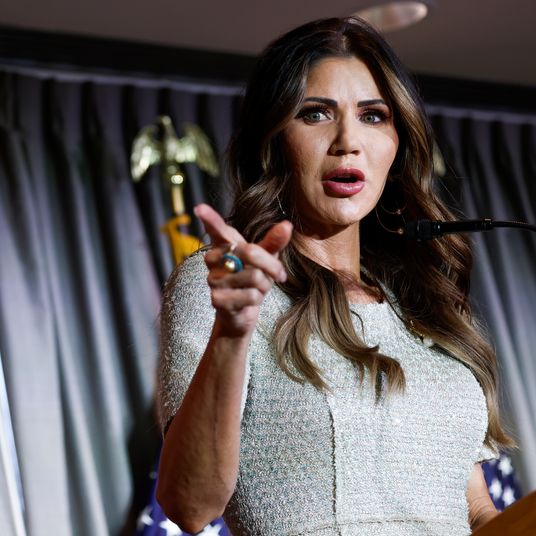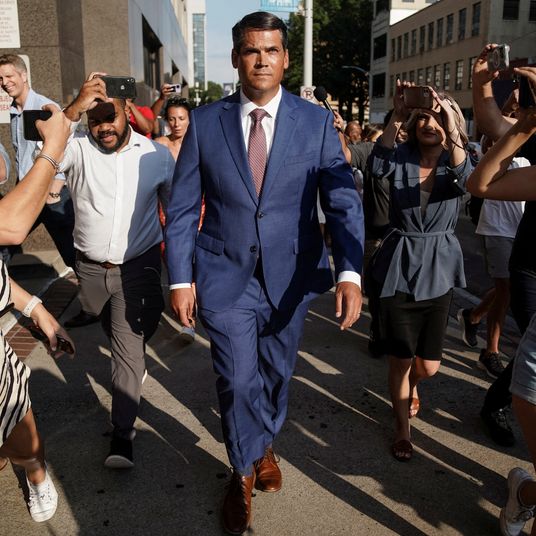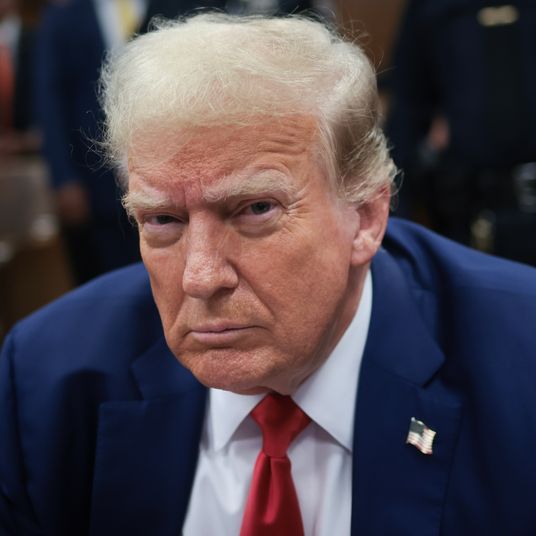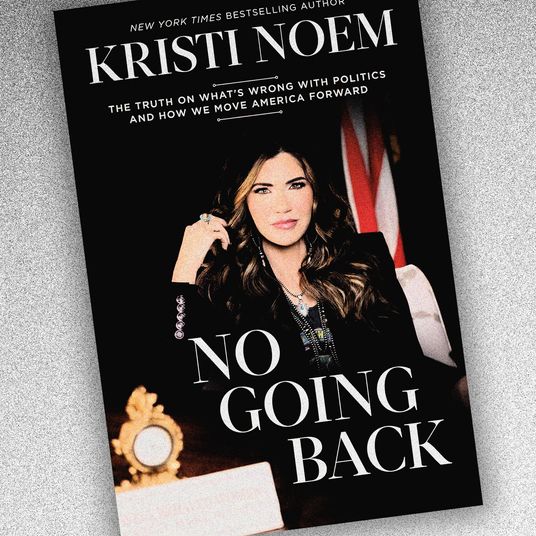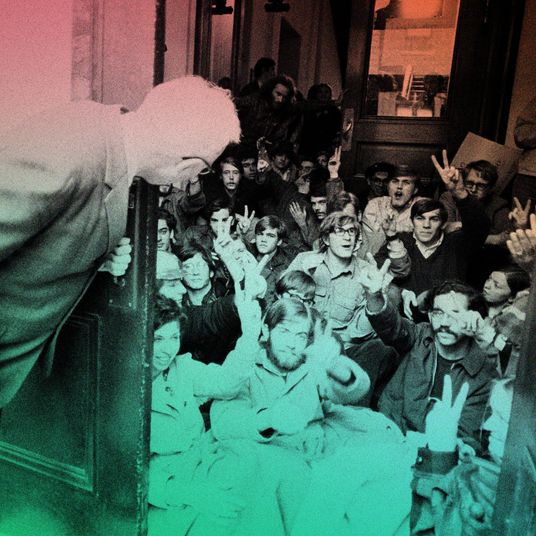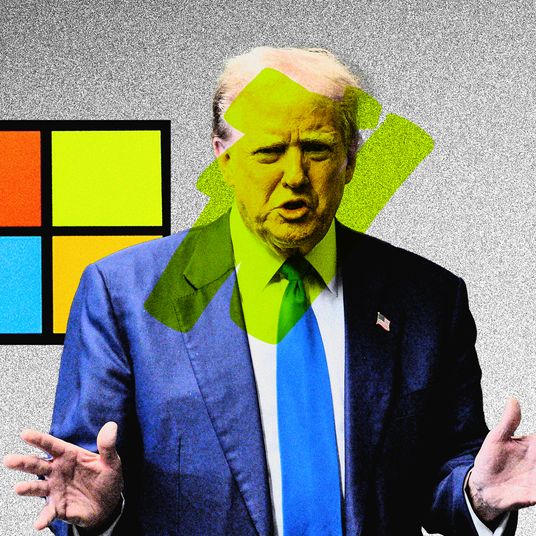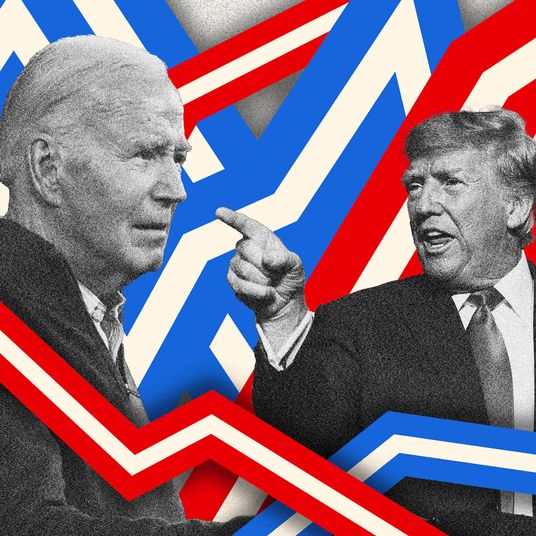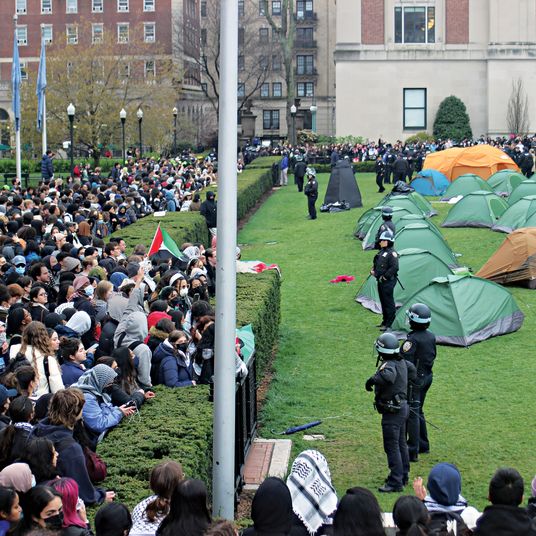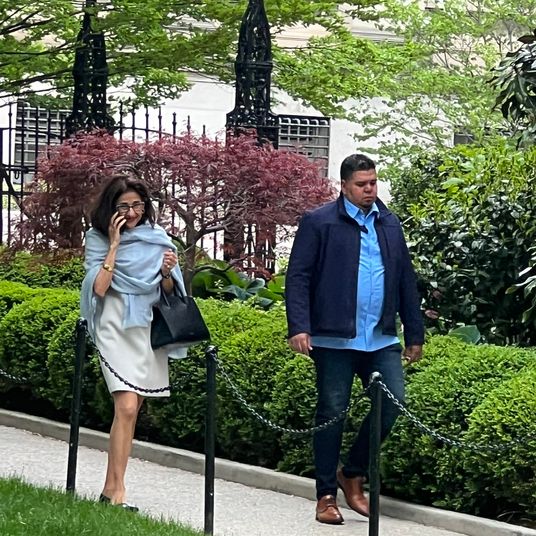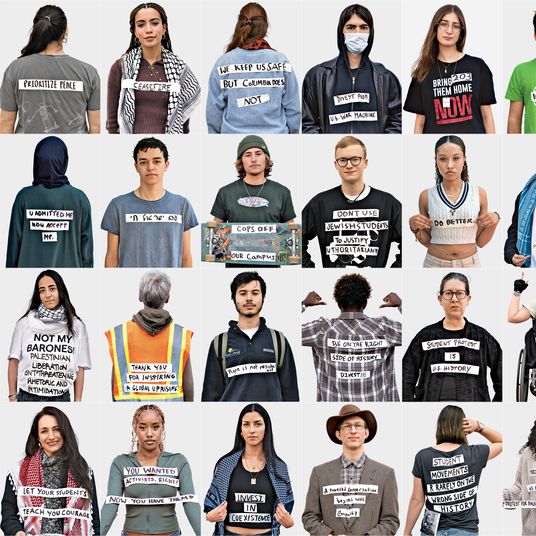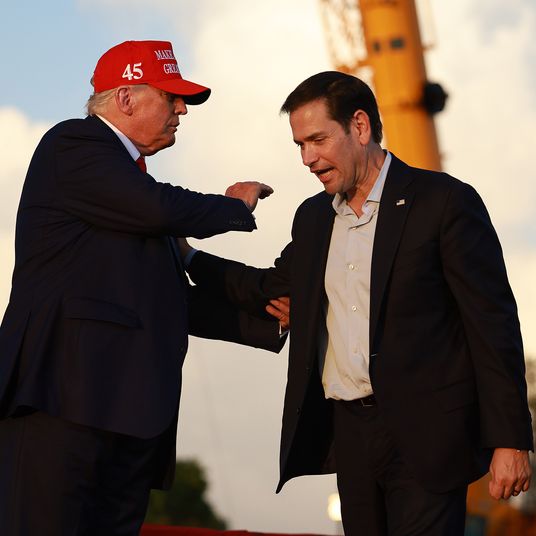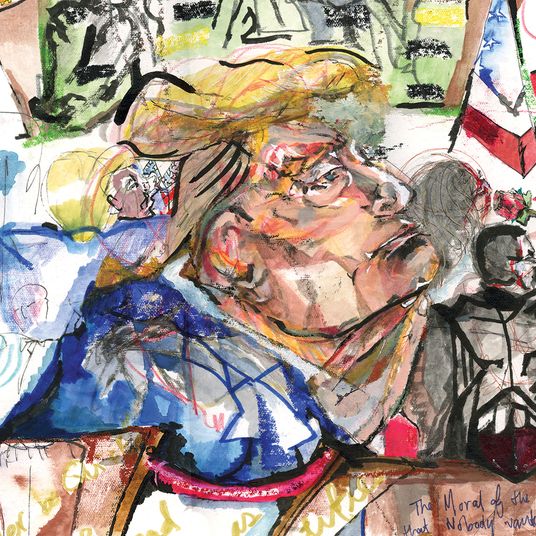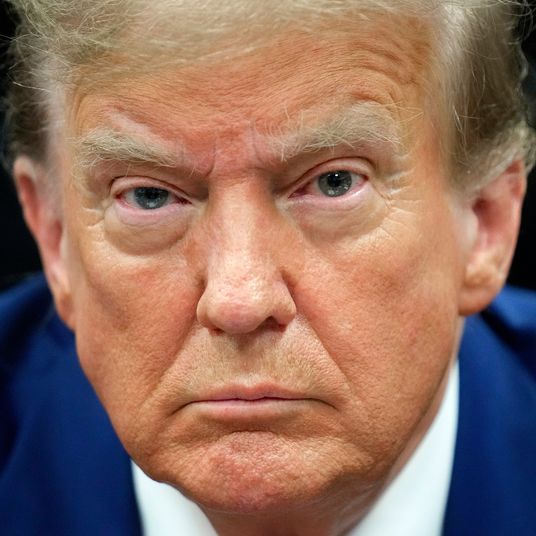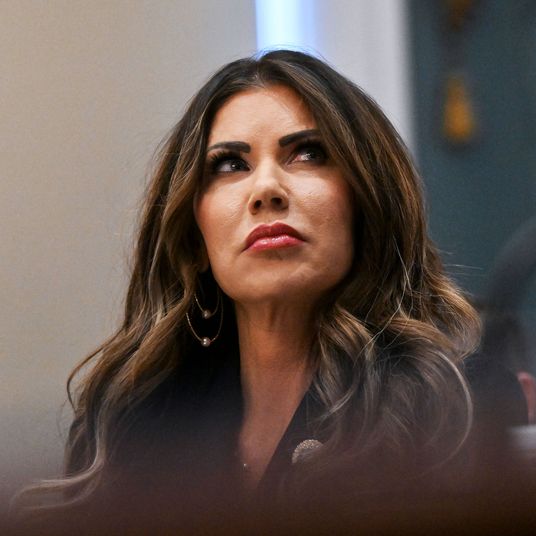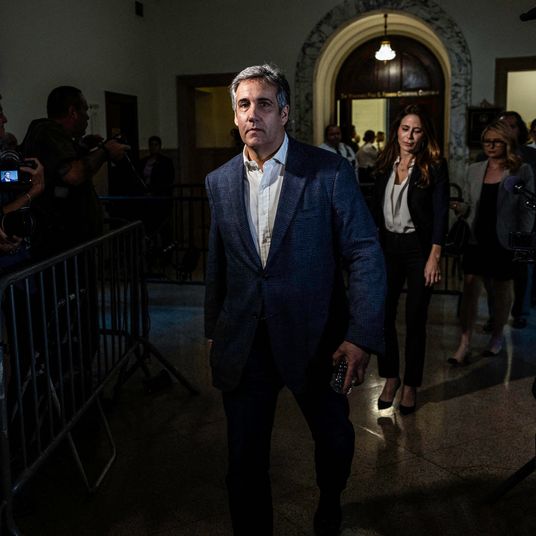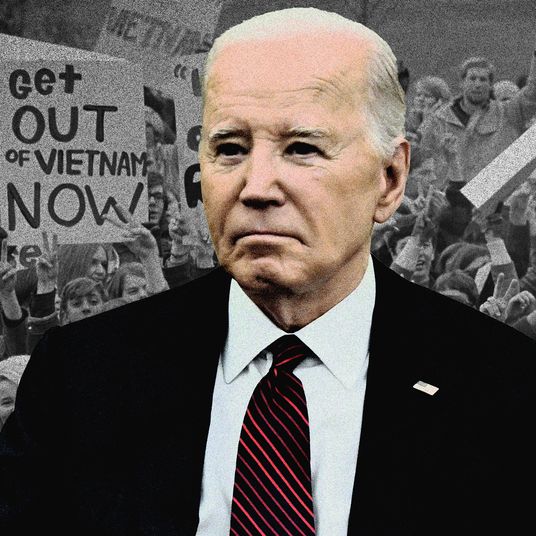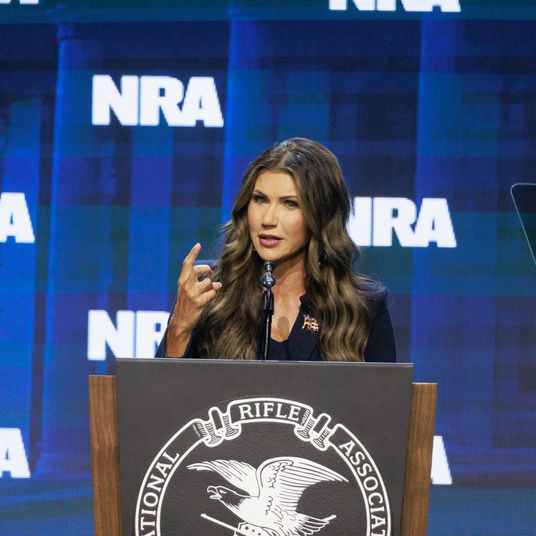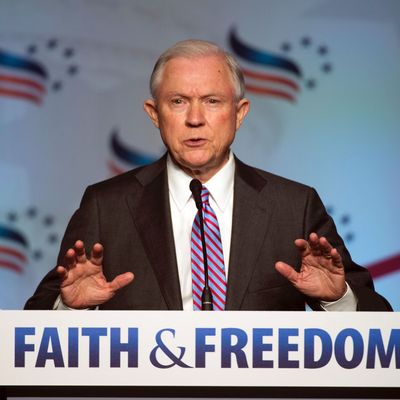
One of blue America’s few consolations on the morning of November 9 was that liberals in California, Nevada, Massachusetts and (probably) Maine had gained the right to treat their Trump anxiety with self-prescribed marijuana.
Including those four referenda, the legalization of recreational marijuana has now been approved by eight states and the District of Columbia. Once legalization is implemented in all of them, 20 percent of Americans will live in a place where over-the-counter cannabis is legal on the local level.
But 100 percent of Americans still live in a place where marijuana is illegal on the federal level — a fact that’s attained heightened relevance following Donald Trump’s revelation of his pick for attorney general.
Alabama senator Jeff Sessions hates marijuana almost as much as he loves his Confederate heritage: The former prosecutor once “joked” to an African-American colleague that he was fine with the Ku Klux Klan “until I found out they smoked pot.”
Just as that dig at cannabis is, far and away, the least alarming thing about that quote, so Sessions’s racism, more broadly, is far more concerning than his passion for the drug war. (These passions aren’t necessarily distinct — Sessions is the Senate’s leading opponent of ending mandatory minimum sentencing for drug crimes, a practice that disproportionately harms of African-Americans.)
Nonetheless, as leader of the Justice Department, Sessions would have the power to force 420-friendly states into compliance with federal law, thereby increasing the number of Americans who can be caged for indulging in a substance less dangerous than alcohol.
In fact, since marijuana is still classified as a Schedule 1 substance — a distinction that marks a drug as having “no accepted medical use” — Sessions could also crack down on the 28 states that have legalized cannabis for certain medical conditions.
During his campaign, Donald Trump repeatedly vowed to leave the question of marijuana prohibition “to the states.” And any federal crackdown would likely inspire heavy backlash, both from “green state” voters and from the burgeoning legal mairjuana industry.
“While the choice certainly isn’t good news for marijuana reform,” Tom Angell, chairman of pro-legalization group Marijuana Majority, said in a statement, “I’m still hopeful the new administration will realize that any crackdown against broadly popular laws in a growing number of states would create huge political problems they don’t need and will use lots of political capital they’d be better off spending on issues the new president cares a lot more about.”
Still, if Sessions had his druthers, there’s little doubt about the course of action he’d pursue.
During Senate confirmation hearings for current attorney general Loretta Lynch, Sessions suggested that he viewed opposition to state-level legalization as a core responsibility of America’s top prosecutor.
“I hope that you will cease to be silent, because if the law-enforcement officers don’t do this, I don’t know who will,” Sessions said. “And in the past, attorneys general and other government officials have spoken out and I think kept bad decisions from being made.”
In a Senate hearing on the federal response to state-level cannabis laws, Sessions called on the government to foster the “knowledge that this drug is dangerous, you cannot play with it, it is not funny, it’s not something to laugh about … good people don’t smoke marijuana.”
The senator also criticized FBI director James Comey in 2014 for suggesting that he was considering loosening the bureau’s hiring restrictions on applicants who have used marijiuana.
“Do you understand that that could be interpreted as one more example of leadership in America dismissing the seriousness of marijuana use and that could undermine our ability to convince young people not to go down that dangerous path?” Sessions demanded.
Sessions has further suggested that Barack Obama’s confession of past marijuana use contributed to the increase in rates of drug overdose in the United States, and pined for the days when “[t]he federal government led the way with tough sentencing, eliminating parole, targeting dangerous drugs in effective ways, and states and local governments followed.”
The likely next attorney general’s passion for federal leadership on marijuana prohibition stands in marked contrast to his belief that the Voting Rights Act intrudes on states’ rights.
But perhaps Sessions simply believes that some policies are so central to who we are as a country, they supersede state sovereignty — and that jailing people for smoking weed is one of those policies, while guaranteeing African-Americans access to the ballot is not.






